Sibling rivalry twins
Dealing With Competition and Jealousy Between Twins
You’ve heard the phrase “healthy competition” and I guess it can at times be healthy; causing us to try harder, put forth our best effort, and giving us the desire to succeed. Ingrained in us all is a desire at some level to be competitive or want to come out on top. For twins, I sense this desire could be stronger since they begin their lives having to share everything. For goodness sake, they share their mother’s body and sometimes the same egg before it splits. I know my sons began their competition in my womb, with their first clash being over space. I even have a video to prove it, where Baby B was pushing and kicking Baby A, who was fiercely guarding his head with his arm.
Fast forward to today, and the competition between our boys is undeniable. They recently started first grade and their competitiveness has kicked into overdrive. One of my sons frequently asks if he did better than his brother in just about everything from school work to chores around the house. Everything has become a contest, from who can do the most jumping jacks to who can get naked first for the bath, and then there is who can do the most jumping jacks while naked. The challenges never end.
Meanwhile, there is the issue of jealousy between them. The definition of jealousy is an unhappy or angry feeling of wanting to have what someone else has. If you think about this definition, you would probably agree that jealousy is not a good emotion. Unfortunately, it is one that we have all experienced at some point in life and will probably experience again. It is an emotion that can be tricky to work through, especially for a young child. Yet, teaching them to do so is vital so it doesn’t grow and become the big green-eyed monster we’ve all heard it referred to.
I realize with my sons having to share so much, jealousy can periodically become an issue. There are times they become jealous of the attention I may be spending on the other, especially if one is sick. They have also encountered feelings of jealousy over accomplishments or accolades the other has received.
The origin of some of the competition and jealousy may initially stem from the fact that a lot of people immediately feel the need to compare twins with each other. It can also be very common for others to lump them together as one unit instead of two separate people. For the most part, this does not greatly upset me, when it involves people who are mere acquaintances and not around them enough to learn their differences. However, when someone is around them a great deal but doesn’t make the effort to know them as two separate individuals it does get under my skin a bit. I’m still working on communicating this to others in a way that my polite nature will allow and always welcome feedback or suggestions from other parents with experience on this topic.
I will also be honest and admit, I have been guilty of exploiting competition between my sons to get them to do things. For example, motivating them to get ready for bed can sometimes be a long drawn out process. I pitted them against each other to see who could get ready for bed the fastest because I wanted to go to bed myself. This was selfish on my part and not something I’m proud of. I’m just trying to be real, and I promise I am working on that.
This was selfish on my part and not something I’m proud of. I’m just trying to be real, and I promise I am working on that.
I doubt there is any sibling relationship which has never encountered a little bit of rivalry. However, when it comes to twins, sibling rivalry is a little different. As a parent, you can’t say, “You’ll get better at that when you are your brother’s age” or “You’ll learn that when you reach the grade your sister is in.” Because they are the same age and most likely in the same grade, twin parents are required to be a little more creative in our responses.
How we do it
I will share what we attempt to do in our house (and I say attempt because there are many times we fail). We don’t discourage one from being better than the other at something, instead, we persuade against being boastful. We like to encourage the boys to celebrate each other’s accomplishments and those of others, even when they may feel sad about not doing so well themselves.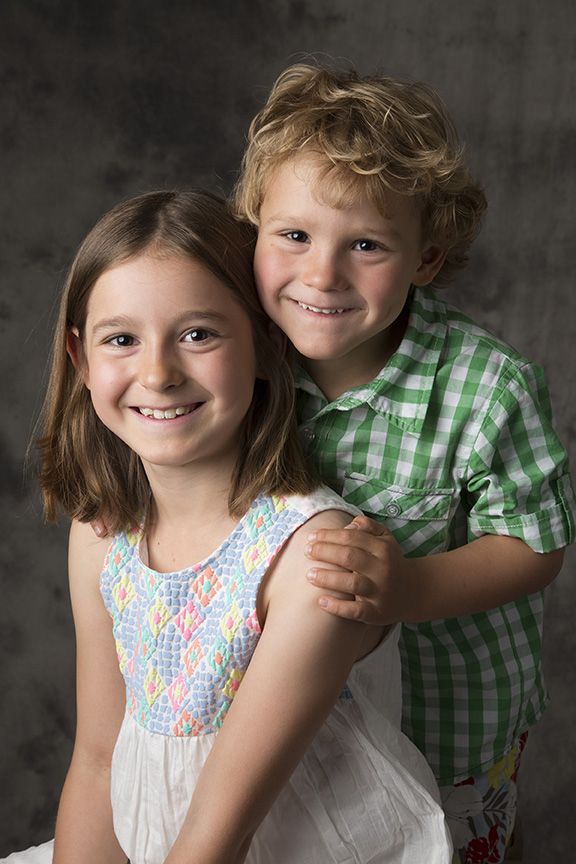 It is not an easy concept for a young child to learn, but it will be even harder for them to learn as an adult. So, it’s best to start young since there is always going to be someone better than you at something.
It is not an easy concept for a young child to learn, but it will be even harder for them to learn as an adult. So, it’s best to start young since there is always going to be someone better than you at something.
My husband and I also use these opportunities to help them and us discover their uniqueness and diverse talents. It is important to find the strengths in each child, and amplify those while at the same time supporting them in the areas where they struggle. It can sometimes be difficult to find the harmony and balance as a parent Because you certainly don’t want to detract from one child’s accomplishments, but you also don’t want to make another child feel “less than” because they didn’t do as well.
Last year, both boys made the honor roll during the first semester; however, only one made it the next two semesters. Ribbons were given out to those who made the list. When one son came home with a ribbon and the other didn’t, I initially wanted to comfort the one who didn’t receive a ribbon and make him feel better, but I knew I must go a different route. I used this occasion to explain the feelings of disappointment and what we can do to remedy that. We looked at his grades and determined which subject needed attention. Then we figured out what needed to be worked on and began the process of perfecting it. By the end of the school year, he had improved so much that he received the student of the month award for his diligence.
I used this occasion to explain the feelings of disappointment and what we can do to remedy that. We looked at his grades and determined which subject needed attention. Then we figured out what needed to be worked on and began the process of perfecting it. By the end of the school year, he had improved so much that he received the student of the month award for his diligence.
There are times where it may be best to give praise in private, which is how we handled the honor roll ribbon. In a one on one scenario, the child not only receives recognition for their achievement but much needed special time with their parent. It also helps to eliminate feelings of jealousy for the other. It is sometimes difficult for us to give undivided attention to each child, but it is important to make the effort to do so, even if it’s just a few minutes each day.
The moral of the story is, encouraging our children in their area(s) of interest and what they excel in are very important, while making certain to realize their differences as two distinct human beings. For your friends and relatives, it may not always be easy to not look at them as “the twins”, but it is important to encourage others to see them individually. It is vital to nurture their bond as twins without causing them to compete against each other. They need to know they are each unique and wonderfully made in their own way.
For your friends and relatives, it may not always be easy to not look at them as “the twins”, but it is important to encourage others to see them individually. It is vital to nurture their bond as twins without causing them to compete against each other. They need to know they are each unique and wonderfully made in their own way.
Christy Moss is an author, poet, and blogger, as well as a full-time working wife and mother to identical twin boys. Her heart is to encourage other moms through the different seasons of motherhood, which led her to author, Seasons of a Mom’s Life. In her spare time, she can be found writing, painting or watching movies with her boys. She would love for you to follow her on Facebook or her blog www.mommypoet.com.
Related Articles
5 Tips to Deal With Twins Fighting
5 Tips to Help Your Twins Be Best Friends
How to Keep Twins From Fighting
Common Reasons & 10 Tips to Deal With Them
If you found it hard to handle your twins when they were born, maybe you weren’t yet thinking about their preschool years! As your twins will grow, you may start to get tired of running after them.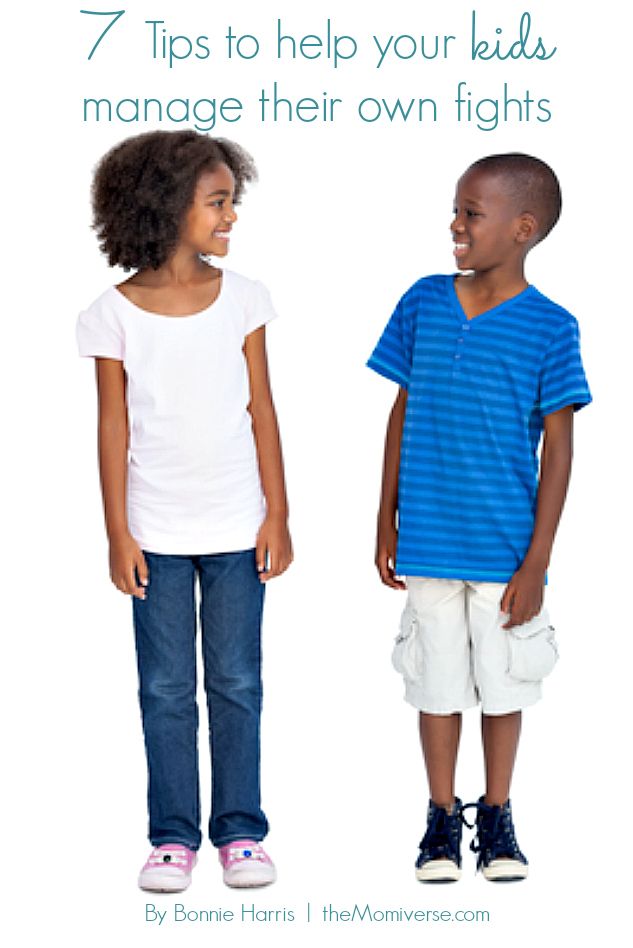 Managing twins is a challenging task, and this challenge multiplies when they fight with each other all the time. If you do not take action on time, their fights will get worse with time.
Managing twins is a challenging task, and this challenge multiplies when they fight with each other all the time. If you do not take action on time, their fights will get worse with time.
Why Do Twins Fight?
Just like all other siblings, twins fight, too, and quite often. These fights begin when they are toddlers; they fight for small issues like being pushed or not sharing a favourite toy to play with, etc. Their mode of fighting could be different, such as hitting, biting, pulling each other’s hair, scratching each other’s arms, and crying. This phase of fighting is completely normal, and is a part of their growing up, when they learn to negotiate with each other. This phase of twin sibling rivalry helps them to explore and form their own identity, and will pass as time goes by.
How to Handle Rivalry and Fighting Between Twins
Although twin rivalry isn’t a huge worry initially, parents should be able to handle it and ensure that it does not affect their relationship in any manner. The following tested and proven techniques will help you manage their fights, and regain peace in the house:
The following tested and proven techniques will help you manage their fights, and regain peace in the house:
1. Acknowledge both of them.
Whenever you see a fight in progress, it is instinct to instantly jump in between to discipline your twins. To be fair to them, give them the chance to speak. First, assign the role of a perpetrator to one kid, while the other one becomes the victim. Later, reverse the roles. In this way, both the children will get the chance to speak from their point of view, and then you can decide. When you are handling twins, it is important to be fair to them. Favouring one child always will make the other one feel bad, and his bad behaviour may aggravate. Hence, it is important to acknowledge them and to help them realise their mistake.
2. Be consistent.
Inconsistency with rules, like making rules one day and breaking them the next day, is often the cause of sibling rivalry. So, it is your responsibility to ensure that rules are followed by your twins. Explain to them why their behaviour isn’t right. Being inconsistent with rules will confuse them, and they won’t understand the difference between right and wrong. Also, make sure that the rules are the same for both children.
Explain to them why their behaviour isn’t right. Being inconsistent with rules will confuse them, and they won’t understand the difference between right and wrong. Also, make sure that the rules are the same for both children.
3. Step out of the home.
One of the best ways to deal with fights between twins (or all children, for that matter) is to get out of the home. If you are worried that this will expose the fights to the outside world, bear it for a while. Once you get out and step into a new environment, it will calm them, and do wonders for their bad moods. Maybe they have stayed indoors for too long, and need to burn off that excess energy. Simply taking a walk in the neighbourhood, or moving to a different room, can make a difference.
4. Keep them apart for a while.
Twins tend to study and play together, whether in playschool or with their common friends. Home is no different, and thus they spend the better part of the day getting on each other’s nerves. If you have tried everything to no end, then you should try to keep them apart. If one is outside for a while, the other child will have no one to fight with, and hence there will be a peaceful environment in your home. Also, as the old proverb goes, “Distance makes the heart grow fonder”, separating them may make them miss each other, and you never know, they may stop fighting.
If you have tried everything to no end, then you should try to keep them apart. If one is outside for a while, the other child will have no one to fight with, and hence there will be a peaceful environment in your home. Also, as the old proverb goes, “Distance makes the heart grow fonder”, separating them may make them miss each other, and you never know, they may stop fighting.
5. Keep calm.
If you want to stop your twins from fighting, don’t raise your voice. If you shout or yell at them, they may imitate you to get on your nerves. So, try the other way. Take a few deep breaths, or listen to some music. Get out of the room in which they are fighting, and let them figure out how to solve the problem on their own. Maintain your calm; you will become a role model for your kids, and they will learn to manage their feelings and emotions by observing you.
6. Give individual attention.
A potent method of preventing a majority of disagreements and fights is to give the twins equal and individual attention.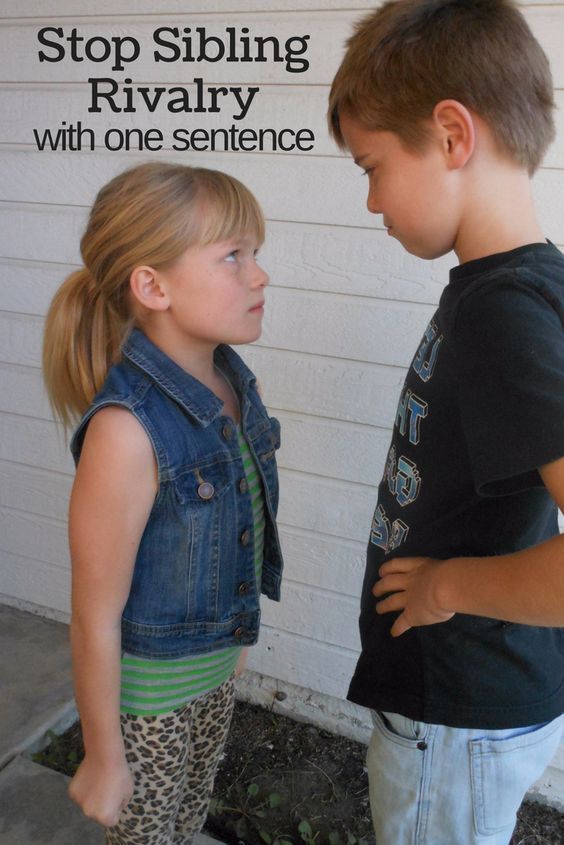 You can spend time solving a puzzle or reading a book together. Do anything that equates to “special time” for them. One-on-one time is always recommended to make them feel loved as an individual, which improves their relationship as twins.
You can spend time solving a puzzle or reading a book together. Do anything that equates to “special time” for them. One-on-one time is always recommended to make them feel loved as an individual, which improves their relationship as twins.
7. Negotiate.
Try to create a win-win situation for your twins in every activity that they choose to do together. This can work wonders in maintaining peace between them for a large part of the day. Allow one to choose which game to play first, but then he has to agree to play the game next selected by the other twin. Encourage them to take turns with everything they do, and guide them gently towards a winning conclusion.
8. Warn them.
As parents, it is your responsibility to teach your twins to solve the conflicts on their own. Most twins will want to play together, which is bound to lead to a conflict at some point. Warn them that if you have to intervene the next time, they will have to spend an hour playing or doing things on their own. This changes their behaviour, and reduces fights.
This changes their behaviour, and reduces fights.
9. Teach cause & effect.
At a very young age, children rarely understand the effect of their actions on another, like biting and shoving. Make a sad face and say, “Oh! That really hurt.” when one of them shoves or bites the other. Push the child’s arm gently against his teeth to show that biting hurts a lot, or mimic the action with your mouth.
10. Eliminate triggers.
Look for things that could trigger a nasty fight between the two. As parents, you will be aware of the toys, games, or books that could act as potential triggers, so ensure they are never left alone with them. Twins also tend to fight when they are tired, so stick around when you think that’s about to happen. This makes life easier for all.
Aggression is a natural but unwanted behaviour in twins when they are toddlers. However, kids learn quickly that parents do not approve of such behaviour, and understand the reaction to negative situations. By staying calm and consistent during such a situation, you can help minimise the fighting between twin children, and establish some peace in your home.
By staying calm and consistent during such a situation, you can help minimise the fighting between twin children, and establish some peace in your home.
"It's not cheaper in bulk": features of raising twins
For parents
One day there was a meeting that changed my attitude to raising twins forever. It was a twin psychologist colleague. She shared her personal experience of interacting with her sister. It turned out that she would change a lot. Most of her trips to a psychologist were not connected with her parents, as is often the case, but with her sister.
After this conversation, I realized how much the psychology of raising twins differs from single-born children. Their development dictates that parents take on more responsibility and apply different approaches to parenting.
Many have heard the expression: "We all come from childhood." The basic models of behavior, the nature of interaction with the world are laid down in childhood and are transferred to adulthood. The task of parents is to know and take into account the peculiarities in education in order to create a favorable environment for the full personality of each child. What approach is chosen depends on how happy and successful the future will be for children.
The task of parents is to know and take into account the peculiarities in education in order to create a favorable environment for the full personality of each child. What approach is chosen depends on how happy and successful the future will be for children.
As a psychologist and mother of twins, I can point out five main points that are worth paying special attention to.
1. Rivalry or competition
Competition among twins is many times higher than that of ordinary brothers and sisters. It starts already in the womb. They constantly compete among themselves for the attention of parents, friends, relatives and even each other. They have a need to stand out and be different. This can happen not only because these children perceive themselves as absolutely equal, but also because of the constant equalization and comparison by others: parents, relatives, society. We may not remember what and how another child did at this age, but the temptation to compare is every minute. Therefore, twins are often perceived as a single entity.
Therefore, twins are often perceived as a single entity.
The physical and psychological stress of parents increases in proportion to the number of twins
In our family, organizing the life of children at home helped to reduce rivalry: different clothes from birth, different toys, their own beds. We never compared them, emphasized the individuality of each, and trained ourselves and others to perceive twins as separate individuals.
There was a funny case when a grandmother (who lives far away and rarely visits) bought three identical soft toys for the girls. Only one of the girls was delighted with the gift, while the others were upset. Then the grandmother realized that it was not necessary to give the same, and began to ask about the preferences of each.
There were also cases when daughters chose the same dolls, but then they quickly lost interest in them. When they realized that they could buy three different ones and play with everyone, it became impossible to persuade them to buy the same toys.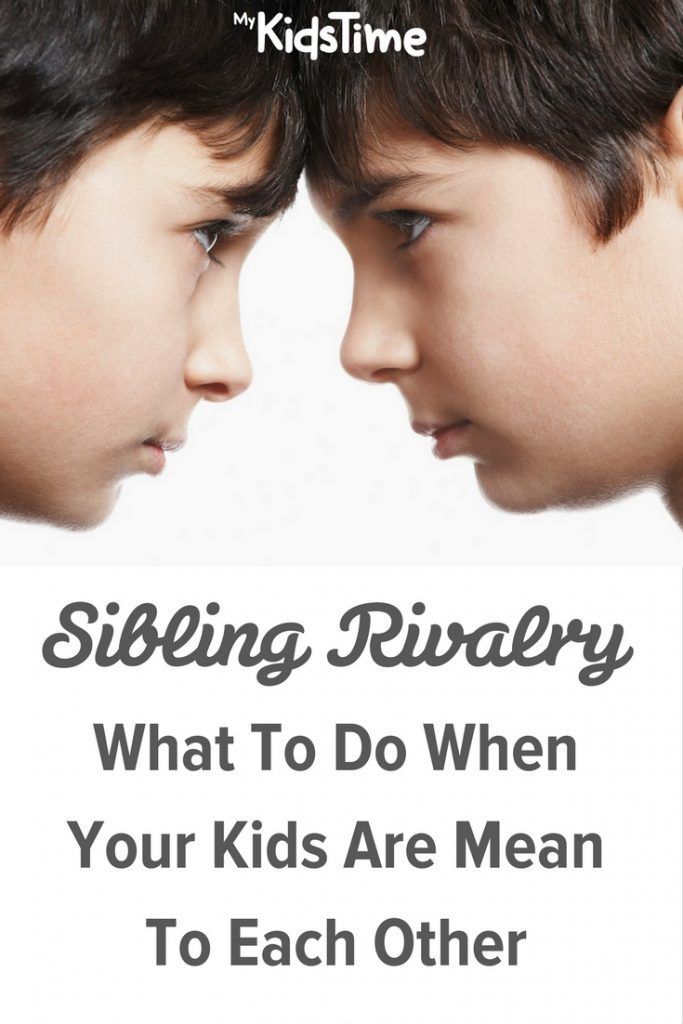
2. Increased physical and psychological stress
The physical and psychological stress of parents, especially mothers, increases in proportion to the number of twins. We have to learn to satisfy the same and simultaneously emerging needs, to distribute attention to each child. Increased time for childcare: feed, change a diaper, bathe, get a massage, schedule doctor visits. Especially stressful in the first years of life. It requires the ability to calculate the time, quickly navigate and react. Emotional costs also grow proportionally: you need to talk to everyone, smile to everyone, or just look into their eyes. But the time in the day is not added.
All parents find their own ways to optimize. My husband and I decided that we would be the only ones raising children. Of course, there were assistants, but they were present about 20% of the time. We were saved by the regime that they helped me establish in the hospital after the birth. The mode when you have more than one child is not hard labor, but freedom. You can plan time for sleep, rest, leisure, visits to doctors. At the same time, children feel better and are more often in a good mood.
You can plan time for sleep, rest, leisure, visits to doctors. At the same time, children feel better and are more often in a good mood.
3. The need to see the personality in everyone and show it to the twins themselves
As mentioned above, parents are very tempted to perceive children born together as a whole. It seems that if everything is done the same way, then there will be less quarrels and misunderstandings between them. But this is the surface behind which the "pitfalls" are hiding. They will emerge as adults.
There is not a single identical person in the world. Even twins with 100% identical genes have differences in addictions and behavior. The task is to reveal individuality. Behind these seemingly simple words lies a huge work: to take the time and see the interests of everyone, learn to perceive as “he” or “she” instead of “they”. This will help the development of leadership in each, eliminate the co-dependence of one on the other.
It is not easy for me and my husband to do this, even after eight years, but the basis of individuality is laid in our children. Girls are more guided by their own interests and understand that each has its own path.
Girls are more guided by their own interests and understand that each has its own path.
4. Ability to interact with a group
Gemini is already a group of children with which you need to learn how to interact and negotiate. This is more difficult than with single-born children, since a particularly close-knit group appears in which a brother or sister is sometimes more related to mother and father. And this is a fact. Geminis spend more time with each other than with anyone else. Therefore, it costs nothing for them to unite to achieve a common goal. Parents have a hard time keeping boundaries.
5. Increased attention from others
The appearance of twins, due to its rarity, immediately translates the family's status into the category of "special". At first, this brings joy to many parents, but there is a downside. Views are not always desirable, questions are annoying: “Are they the same for you?”, “Who is the eldest?”, “Did you have twins in your family?”, “You yourself or IVF?”, “How do you cope with them?”. Questioning takes the resource and attention of parents.
Questioning takes the resource and attention of parents.
When you unexpectedly become a "star", you understand that popularity has its drawbacks. You need to be aware of this and be ready to become "bad" for someone. Especially on a walk or in the hospital, when you need to keep track of several children at the same time, and questions from outside are still pouring in. At such moments, I realized how curiosity blocks the sense of tact even among the most intelligent people.
The appearance of twins in a family is a joyful event that not everyone can experience. But their upbringing and development dictates special approaches. It is better to approach this issue consciously from birth, so that in adult life it would be easy for children to adapt and socialize separately. According to statistics, cases when one twin obeys the other occur in 75-80% of pairs of children. This behavior is established in early childhood and continues throughout life or until adolescence.
The happiest twins are those who can act and make decisions independently of brothers or sisters
If the children were not separated until adulthood, they were brought up in an atmosphere of “twinism” (they lived together, sat at the same desk, entered the same university) , they will have to experience the stress of separation. In some cases, in order to avoid stress, such children get a job together, continue to live together or nearby, spend time in the same company. They can live their whole lives together without separating: "Together we are strong, but separately we are not."
In some cases, in order to avoid stress, such children get a job together, continue to live together or nearby, spend time in the same company. They can live their whole lives together without separating: "Together we are strong, but separately we are not."
There may be a diametrically different situation when twins stop communicating from a certain age or are in a state of "cannot be together and separately too." The happiest twins are those who can live a fulfilling life, act and make decisions independently of their siblings. Feel like an independent person, but at the same time maintain warm, friendly relations.
When children are happy and self-sufficient, parents feel fulfilled and satisfied, not disappointed, depressed and guilty. But the foundation for this is laid in early childhood and very much depends on how consciously mother and father approached upbringing. Remember, yesterday cannot be turned into today.
About the author
Evgenia Vlasova — psychologist, mother of triplets. Advises parents of twins on the peculiarities of psychological education.
Advises parents of twins on the peculiarities of psychological education.
Text: Evgenia Vlasova Photo source: Getty Images
New on the site
“I want to make art my source of income, but I’m not sure I have enough talent”
“The relapse made me angry”: a reader’s story about having undergone cancer twice
Stop hating yourself: how to achieve true acceptance of your body
Should an adult child give money to the family?
“My boyfriend is not ready for children, and I’m afraid that the clock is ticking”
“My stepfather harassed me, but my mother still kept a relationship with him”
If sex disappeared from a relationship: 9 ways to awaken desire
What your partner (shouldn't) know: the opinion of a family counselor
They are the same! How to Raise Twins
Yes, twins or twins can be both similar and very different, and be friends, and quarrel, want the same thing - and completely opposite things.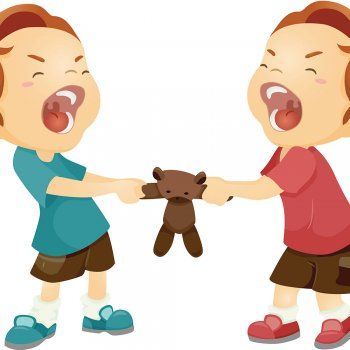 Psychologists Anna Skavitina and Maria Grigorieva told why it is important to raise two separate children, taking into account their characteristics and needs.
Psychologists Anna Skavitina and Maria Grigorieva told why it is important to raise two separate children, taking into account their characteristics and needs.
Anna Skavitina, psychologist, analyst, member of the IAAP (International Association of Analytical Psychology), supervisor of the ROAP and the Jung Institute (Zurich), expert of the Psychology journal
Maria Grigoryeva, child analytical psychologist, neuropsychologist, mother of twins
The perfect duet
Our lives are often spoiled by stereotypes and popular culture. For example, such an idea that all twins have an ideal relationship. In fact, the opposite is true, it is very difficult for twins to get along with each other. Often they are even ashamed that they cannot get along the way everyone fantasizes, and it is difficult for them to answer the questions of friends and relatives, “Why do you quarrel if you are the same?” In addition, children from multiple pregnancies often experience shame if they grow up and want to be separated, to live their own lives. Understanding that not only they experience difficulties in communication, but almost all twins, brings relief to both the twins themselves and their parents, who often suffer that children cannot negotiate and compete fiercely.
Understanding that not only they experience difficulties in communication, but almost all twins, brings relief to both the twins themselves and their parents, who often suffer that children cannot negotiate and compete fiercely.
Twins not only have a brother or sister with whom they spent a lot of time together and simultaneously developed in their mother's belly, but also two different personalities - both "twin" and as separate. Twin identity creates a deep attachment that will be present consciously or unconsciously throughout life. And individuality creates competition, anger, frustration and resentment. Sharing parental attention can create deep insecurities and feelings of inadequacy.
Studies show that at the same level of emotional development of intelligence, twin children, especially same-sex twins, differ significantly from single-born children. As a rule, twin children have lower self-esteem than their peers. At the same time, a twin brother or sister is a very significant figure. Often a child from a pair of twins gives a brother or sister an emotional assessment higher than himself. In addition, twins who are brought up in complete families are characterized by a division into "mother's" and "dad's", i.e. one child feels a greater emotional closeness with the mother, and the other with the father. This applies more to same-sex twins, and opposite-sex twins are emotionally closer to single-born children.
Often a child from a pair of twins gives a brother or sister an emotional assessment higher than himself. In addition, twins who are brought up in complete families are characterized by a division into "mother's" and "dad's", i.e. one child feels a greater emotional closeness with the mother, and the other with the father. This applies more to same-sex twins, and opposite-sex twins are emotionally closer to single-born children.
I understand you
An important feature of twin children is that they are more anxious compared to single-born peers. Moreover, if in single-born children the level of anxiety is the lower, the higher the development of intelligence, then in twin children the level of anxiety is high at any level of intellectual development. There is even a tendency that the higher the intellectual development of twin children, the higher the level of anxiety.
Increased anxiety is largely associated with overexcitation, increased load on sensory systems. Even before birth, twin children are already in conditions of increased sensory stimulation, they touch each other, hear each other, see. In fact, they become for each other the very first, closest person. Mothers of twins know the feeling that they are a little apart, emotionally further away from twins than from a single-born child. Moms often experience their incomplete inclusion, thinking of themselves as not being the right mom. On the one hand, this situation has its own bonuses - children actively spend time with each other, they are busy, develop - and even faster than their peers, since the transfer of information, knowledge and skills within a pair of twins is very fast, and the opportunities to perceive various kinds of information two children have more than one. On the other hand, parents of twins, especially mothers, have to make much more efforts in order to organize the interaction that normally develops naturally between the mother and the separately born child from the first moments of life.
Even before birth, twin children are already in conditions of increased sensory stimulation, they touch each other, hear each other, see. In fact, they become for each other the very first, closest person. Mothers of twins know the feeling that they are a little apart, emotionally further away from twins than from a single-born child. Moms often experience their incomplete inclusion, thinking of themselves as not being the right mom. On the one hand, this situation has its own bonuses - children actively spend time with each other, they are busy, develop - and even faster than their peers, since the transfer of information, knowledge and skills within a pair of twins is very fast, and the opportunities to perceive various kinds of information two children have more than one. On the other hand, parents of twins, especially mothers, have to make much more efforts in order to organize the interaction that normally develops naturally between the mother and the separately born child from the first moments of life.
In addition, twin children immediately after birth find themselves in a situation of the need to constantly track in the field of view of a twin brother or sister. Therefore, twin children can actively develop their intellectual abilities, but the nervous system of twin children is actually experiencing serious overload, and their anxiety increases.
Who is better?
It turns out that the parents of twin children face a rather difficult task! On the one hand, twin children have a very close relationship, due to their joint development even before birth, which must be taken into account. On the other hand, parents have to break through a certain barrier of "fixation" of twin children on each other in order to provide their children with the necessary conditions for the full development of their individuality. Even though twins may be very similar, they have their own individual traits and characteristics, just like any other people! Yes, having been born with a twin, you are forever a twin. Gemini cannot "divorce". The relationship of twins, often mysterious and difficult to understand both inside and out, difficult to describe in words, is undoubtedly a source of surprise, satisfaction, loneliness, anxiety.
Gemini cannot "divorce". The relationship of twins, often mysterious and difficult to understand both inside and out, difficult to describe in words, is undoubtedly a source of surprise, satisfaction, loneliness, anxiety.
Twins compete with each other or are jealous of each other because of their unique and deep affection that creates … competition. This rivalry is based on reality: twins compare each other from an early age. Who gets more food, love, attention, toys and special time is compared and contrasted verbally and non-verbally. Comparison becomes part of a child's life - and leads to big questions between twins.
Here are examples and variations of how to deal with parental comparisons and how to teach twins to deal with.
- Which one of us is right? (Correct: you both have the right to your opinion)
- Who made the biggest mistake? (Correct: let's fix it or solve the problem together)
- Who is to blame for the mess in the room? (That's right: I'll help you clean up)
- Who is smarter, prettier, slimmer, more talented? (Correct: what's the difference?)
Competition from early childhood creates a struggle that lasts for many years and throughout life. But worse than this is the unspokenness of resentment and anger, which can lead to increased conflicts.
But worse than this is the unspokenness of resentment and anger, which can lead to increased conflicts.
How to make life easier for the whole family?
- If you, as parents, have the slightest opportunity to involve assistants in the process of caring for and raising twin children, use it. This, firstly, will unload the mother and give her the necessary strength and resources to raise children, and secondly, it will create the possibility of greater adult participation in the development of twin children, which will avoid their obsession with each other.
- Talking, clarifying, understanding that twins are different people with different opinions - this is the way to understanding and harmonious relationships.
- When parents are ready, it is worth starting to separate twin children, giving them the opportunity to train, gain individual skills, without relying on a brother or sister. It is better to do this as soon as possible. Although the process should be very soft, comfortable, and all family members should be ready for it.
 It’s good if in some daily business one of the twins can be with mom, and the other with dad (grandmother, nanny), and the next time it’s the other way around. In this way, children gain the experience of individual interaction with each of the parents, so a personal experience, independent of a brother or sister, is gradually formed.
It’s good if in some daily business one of the twins can be with mom, and the other with dad (grandmother, nanny), and the next time it’s the other way around. In this way, children gain the experience of individual interaction with each of the parents, so a personal experience, independent of a brother or sister, is gradually formed. - Individual experience is the best way to reduce conflict and competition between twins, because each will feel entitled to their unique place in this family and in the world.
Twin daughters: personal experience
Maria Grigoryeva: “My husband and I began to think about the possibility of separating girls almost from their birth. At first, the children had everything in common, and only the color of their clothes differed, but each had its own set of things. The girls attended classes together, were in the same kindergarten group, and they had the same toys. We know firsthand that children demand the same toys, and if there is a minimal difference in details, then both require the same one!
Separation should start with less important things for kids: for example, we never had two identical sets of clothes, even if the color was always different.
There were no identical books, educational toys - puzzles, insert frames, lacing, one daughter could assemble a house, and another an airplane. These are the toys that appear even before the moment of division into "mine - yours." But the gifts and personal toys - bears, bunnies, dolls, houses - those that the children really wanted or those that had great emotional value were identical. On the one hand, this approach teaches children that clothes and toys can be different, and on the other hand, it does not create unnecessary tension when it comes to those toys that are a symbol of attention, care, and love for a child.
At the age of 6, the girls went to one group for preparation at school, and we watched. It was not easy for them, they were both energetic, fast, actively communicated with each other and with the teacher, but they took too much of his attention, it was difficult for the teacher: the children are capable, but there are "many" of them. And if it’s difficult for a teacher, it causes him negativity, and such an attitude already affects the comfort and well-being of children.
Six months later, we were offered to try to divide the children into different groups, we agreed to try. We talked with the children, the separation went well - both the children and us were comfortable. The experience turned out to be successful, and our girls went to different first grades. Of course, the teachers knew about our situation and did not interfere with their communication during breaks, in general they were understanding. The girls attended additional classes up to grade 4 together, until they told us that they had different interests, and one began to draw, and the other to sing. Later, they chose different musical instruments for themselves, and practiced in different places, at different times.
Now my girls are 14 years old. Each has its own social circle, its own interests, its own style of clothing, each has its own space - its own room. Nevertheless, situations arise from time to time that they get tired of each other - like all sorts of people who spend a lot of time together.
I think that twin children, who are used to having everything in common, also get tired of each other, because they simply don’t know that there can be something separate, their own, they don’t have such experience. However, every baby is unique, even if it seems that twin babies are identical! And each family's experience is unique.
It is important to remember that any decisions and changes should be comfortable for each particular family - both parents and children. Even if it’s hard for you now to imagine how you can separate your twins, how exactly to organize a personal space for each of them in which each child would be comfortable developing, then an important step is to simply remember not only about their similarity, but also about their individuality and uniqueness ".
Raising a child is certainly an interesting, but sometimes difficult, and sometimes exhausting process, and raising children of twins is doubly so!
The main question that arises among parents of twin children is the same or different (in everything)? We wrote that from birth, twin children constantly keep their brother or sister in the focus of attention, constantly compare themselves with each other, experiencing significant emotional overload.












